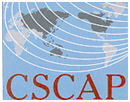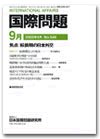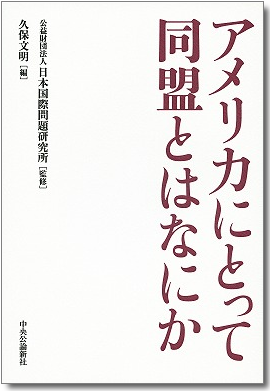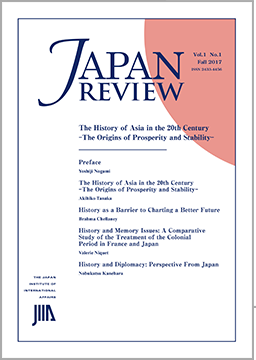CENTERS
Disarmament and Non-Proliferation
 After the Cold War, the momentum of the international community to strengthen the efforts for disarmament and non-proliferation has increased more than ever before. For one reason, it is because the collapse of the Cold War structure, which resulted in a bipolar confrontation between East and West, brought a new international trend to pursue disarmament and non-proliferation. On the other hand, the end of the Cold War intensified the destabilizing factors against the world peace such as ethnic confrontation, making it more pressing to promote disarmament and non-proliferation as one of the settlement measures for them.
After the Cold War, the momentum of the international community to strengthen the efforts for disarmament and non-proliferation has increased more than ever before. For one reason, it is because the collapse of the Cold War structure, which resulted in a bipolar confrontation between East and West, brought a new international trend to pursue disarmament and non-proliferation. On the other hand, the end of the Cold War intensified the destabilizing factors against the world peace such as ethnic confrontation, making it more pressing to promote disarmament and non-proliferation as one of the settlement measures for them.
Against this background in July 1995, Foreign Minister Yohei Kono (at that time) advocated that Japan should have established a national framework and place more emphasis on the activities on disarmament and non-proliferation. As part of such efforts, the Center for the Promotion of Disarmament and Non-Proliferation (CPDNP) was founded in the Japan Institute of International Affairs in July 1996.
CSCAP
 The Japan Institute of International Affairs along with nine other international policy and research institutes established CSCAP in 1993 in Kuala Lumpur. CSCAP is a non-governmental "Track II" process for multilateral security dialogue in the Asia-Pacific. Membership has expanded and today includes institutes representing Australia, Brunei, Cambodia, Canada, China, India, Indonesia, Japan, North Korea, South Korea, Malaysia, Mongolia, New Zealand, the Philippines, Russia, Singapore, Thailand, United States and Vietnam. CSCAP members seek to enhance regional security and stability through consultations and cooperation on policy issues and problems of mutual concern. CSCAP often addresses issues that are too sensitive for official dialogue, and supports and complements the efforts of governmental, "Track I" multilateral dialogue mechanisms such as the ASEAN Regional Forum (ARF).
The Japan Institute of International Affairs along with nine other international policy and research institutes established CSCAP in 1993 in Kuala Lumpur. CSCAP is a non-governmental "Track II" process for multilateral security dialogue in the Asia-Pacific. Membership has expanded and today includes institutes representing Australia, Brunei, Cambodia, Canada, China, India, Indonesia, Japan, North Korea, South Korea, Malaysia, Mongolia, New Zealand, the Philippines, Russia, Singapore, Thailand, United States and Vietnam. CSCAP members seek to enhance regional security and stability through consultations and cooperation on policy issues and problems of mutual concern. CSCAP often addresses issues that are too sensitive for official dialogue, and supports and complements the efforts of governmental, "Track I" multilateral dialogue mechanisms such as the ASEAN Regional Forum (ARF).
PECC
![]() The Japan Institute of International Affairs serves as the secretariat of the Japan National Committee for the Pacific Economic Cooperation (JANCPEC). Ambassador Yoshiji Nogami is the JANCPEC chair.
The Japan Institute of International Affairs serves as the secretariat of the Japan National Committee for the Pacific Economic Cooperation (JANCPEC). Ambassador Yoshiji Nogami is the JANCPEC chair.
The Pacific Economic Cooperation Council is an independent and unofficial regional mechanism to advance economic cooperation and market-driven integration. PECC is a unique partnership of business, government and intellectual leaders engaged in their private capacities to promote economic growth, social progress, scientific and technological development, and environmental conservation. Founded in 1980 at the initiative of Masayoshi Ohira and Malcom Fraser, then prime ministers of Japan and Australia, PECC organizes task forces, project groups and forums. PECC has twenty-four full Member Committees and one Associate Member from economies in the Pacific region. The Japan National Committee consists of over eighty representatives of business, government and the academy.
Japan Information Center
 JIIA is pleased to announce that JIIA has launched a new project to offer a broad range of views on geostrategic and historical issues that Japan currently faces. We will present in English the latest discussion on Japan's evolving foreign policy as it adapts to new geopllitical realities. JIIA believes that this project will be an indispensable source of information and ideas for anyone interested in Japan's foreign relations. The Japan Information Center publishes an English journal, the Japan Review, three times a year.
JIIA is pleased to announce that JIIA has launched a new project to offer a broad range of views on geostrategic and historical issues that Japan currently faces. We will present in English the latest discussion on Japan's evolving foreign policy as it adapts to new geopllitical realities. JIIA believes that this project will be an indispensable source of information and ideas for anyone interested in Japan's foreign relations. The Japan Information Center publishes an English journal, the Japan Review, three times a year.
Topics
Membership
 Archive of high-quality scholary works translated from Japanese to English
Archive of high-quality scholary works translated from Japanese to English
A highlight of JIIA's recent activities and a summary of its organization.
Publication
Journal

Kokusai Mondai (International Affairs)
No.680 April 2019 "Protecting Human Rights via International Procedures"
Vol.2 No.4 Spring 2019
"Japan and the Post-World War II Liberal International Order"
Books
 What Do Alliances Mean to the US?
What Do Alliances Mean to the US?
(Fumiaki Kubo ed., 2013)





